Following what has been called the ‘Attenborough effect’, consumers are abandoning plastic due to a growing awareness of its impact on the environment.
Consumers are making easy swaps to plastic-free products – so businesses are responding by changing the materials they use.
So-called ‘eco-friendly plastics’ are popping up everywhere – from compostable, to plant-based, to biodegradable – But what are they; how are we supposed to dispose of them; and are they too good to be true?
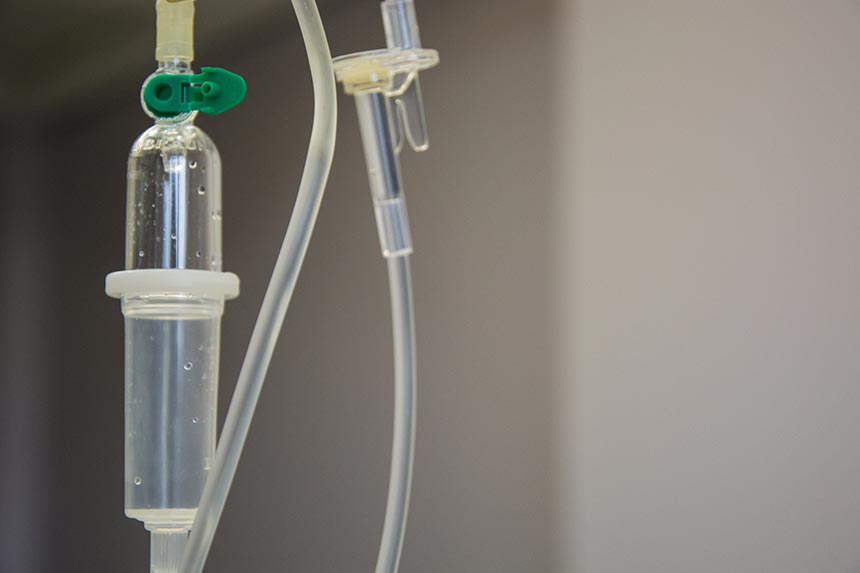
Plastic – miracle material or dangerous litter?
When plastic was first invented in the late 19th century, it was celebrated as a miracle material. It has helped us preserve and transport food; it has reduced the spread of disease; and it has brought us light-weight, more fuel efficient transport.
But the problem isn’t the material itself. It’s the way we use it. We waste finite fossil fuels to produce items that are used just once, sometimes for a few minutes – or just seconds.
When these items end up in the environment – whether in oceans or in landfill – they leach harmful chemicals and cause further damage to our ecosystem.
It’s no surprise that plastic is at the top of the sustainability agenda. With mounting pressure from consumers, conscious competitors and environmental groups, companies are scrambling for alternatives.
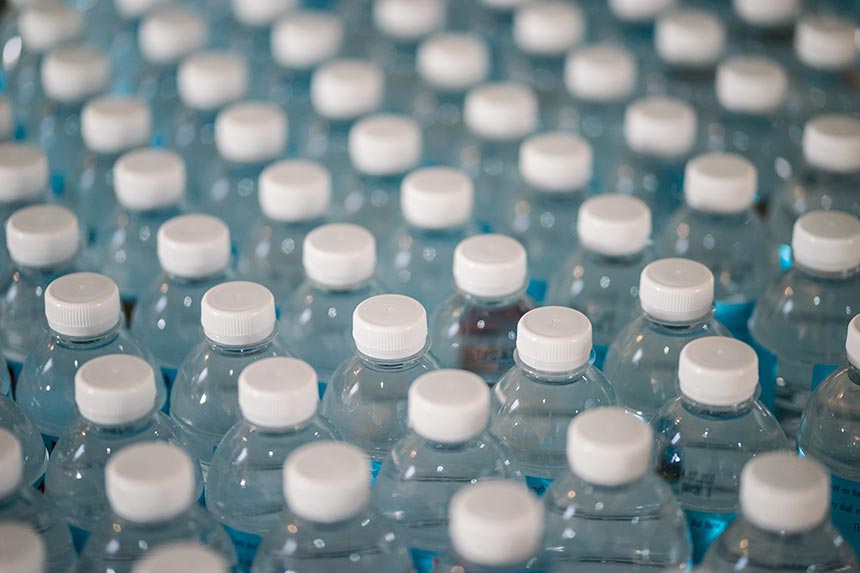
“Environmentally-friendly” plastic?
Have you heard of ‘bioplastics’ before? While it may sound eco-friendly, the meaning is quite ambiguous. If a material is a bioplastic, it means that it’s either:
- Plant-based (made in part or completely from organic matter, e.g. sugar cane or corn starch). These plastics are not necessarily biodegradable.
- Is biodegradable (biodegradable plastic can sometimes be made entirely from fossil fuels)
- Is both plant-based and biodegradable
It’s important that as we move into using alternatives, we are aware of what we are consuming and how we should be discarding it. To find out more about bioplastics, check out City to Sea’s blog.
So, what exactly are plant-based plastics?
Plant-based plastic is a type of bioplastic that is created from agricultural scraps, often from corn, sugarcane, wheat or food waste. The term ‘plant-based’ refers to the source of the material itself, not how the resulting plastic will behave after it’s been thrown away.
But, there’s a catch! Only 20% of the ingredients need to be from renewable, organic materials in order for a plastic to be labelled ‘plant-based’. This means the resulting plastic could still be non-biodegradable and be made from up to 80% fossil fuels!
Not so green after all…
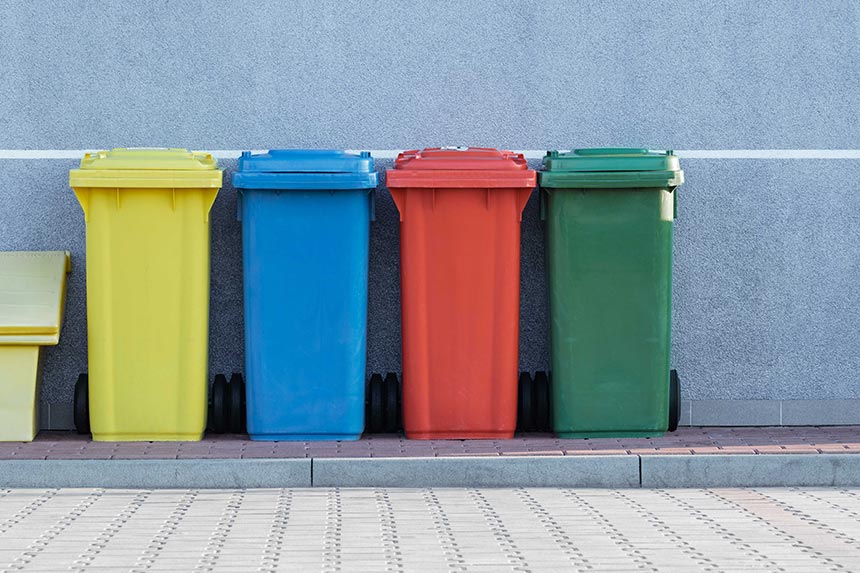
Disposing of plant-based plastic
Plant-based plastic, like all other types of plastic, can be designed to behave in one of three different ways in the environment:
To last forever
Non-biodegradable plastic is extremely durable and will last for years. So long, in fact, that it takes 500 years to degrade. And even then, it doesn’t fully disappear; it just breaks down into smaller and smaller particles that remain in the environment. Many types of non-biodegradable plastic are recyclable, like plastic milk cartons which are made from HDPE, or fruit punnets which are made from PET.
To biodegrade
‘Biodegradable’ plastic can be broken down completely by bacteria or other living organisms.
If a plastic is described as biodegradable, it doesn’t mean that you can throw it away anywhere. If it’s left in the wrong environment, it won’t have a chance to biodegrade and will behave in the same way as non-biodegradable plastic.
It’s a good idea to read the back of the pack to check how you can dispose of biodegradable plastics – as there are many different types and they require different conditions to biodegrade.
If in doubt, leave it out and find an alternative if you can.
To compost
Compostable plastic will decompose in either a home composting environment or in industrial composting conditions. The only plastics that can be composted are those that have met an industrial standard (EN 13432) or to a home composting standard like OK Compost.
Something important to note; compostable plastic that is certified to an industrial standard will not break down properly in a home composting environment.
You can’t add compostable or biodegradable plastic to the regular recycling streams. It will disrupt the recycling process, and the whole lot becomes destined for landfill.
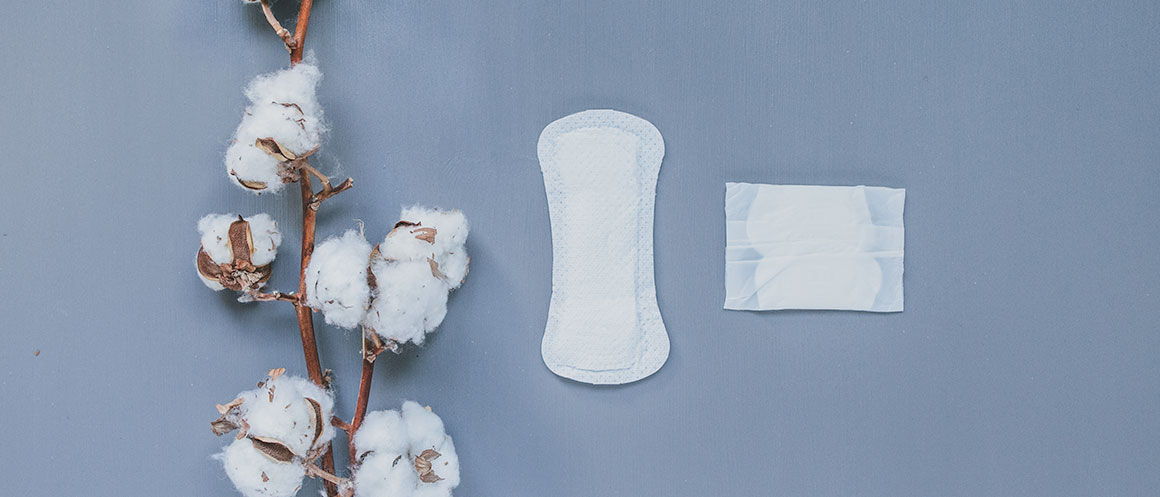
What does Natracare use?
All our panty liners and pads have a bioplastic backing sheet to ensure that they hold back leaks. We use the same material to wrap our individually-wrapped panty liners and pads.
The bioplastic that we use is derived from agricultural waste from corn production. The corn is non-GMO and has had all of its allergens removed. Our products have compostability certificates from OK Compost for home, soil and industrial composting.
The only time we will ever use plastic is when there is no other option available. For example, our non-applicator tampons are wrapped in a recyclable plastic. This is because tampons are considered a medical device and they need protecting from moisture and bacteria, which only conventional plastic achieves.
The future of plastic
Plant-based plastics seem attractive at first glance – but in order to not dig ourselves further into the hole of global plastic-pollution, it’s important that we examine all of the options carefully. As demand grows, we hope that businesses, local councils and individuals support the options that are best for people and for the planet.
What do you think about this topic? Let us know in the comments below, or on Facebook or Instagram.
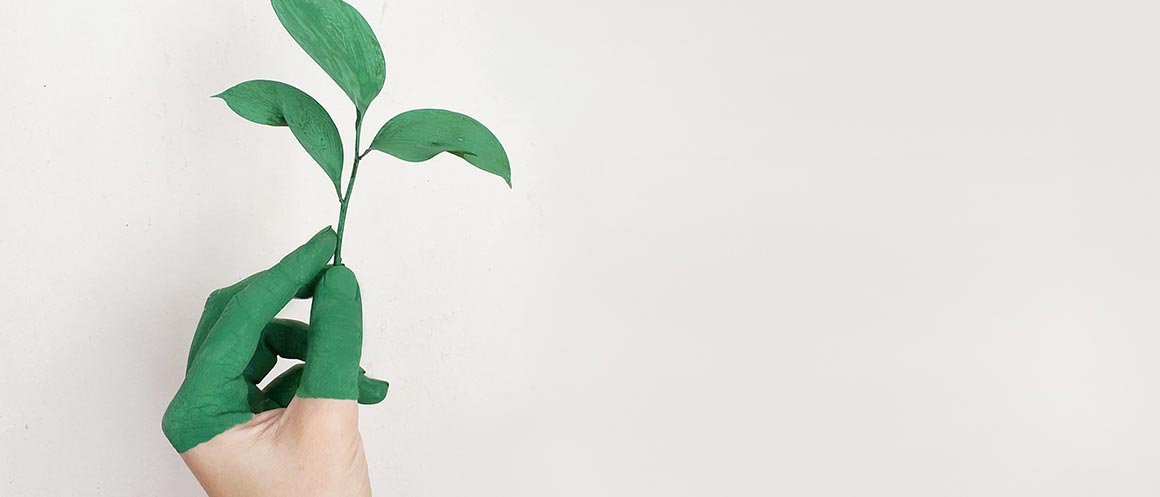


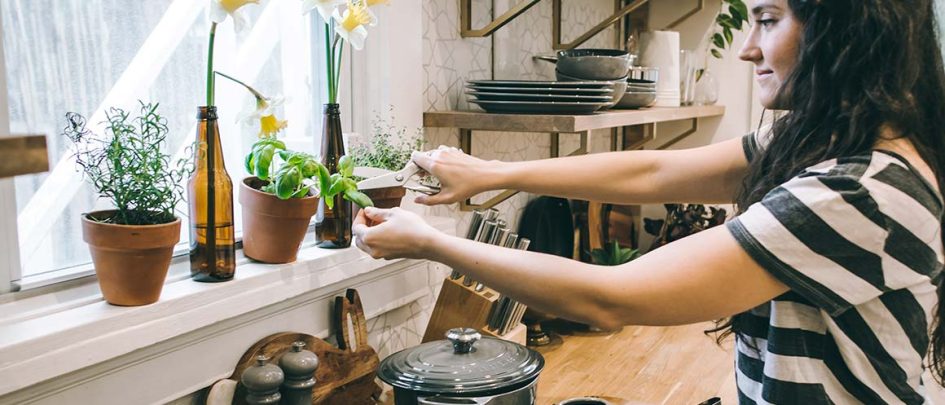






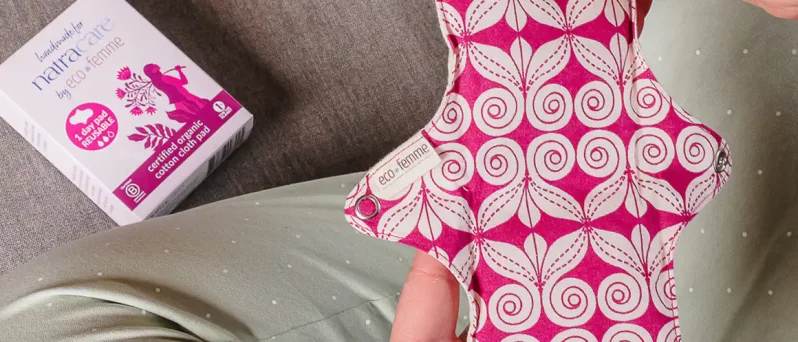

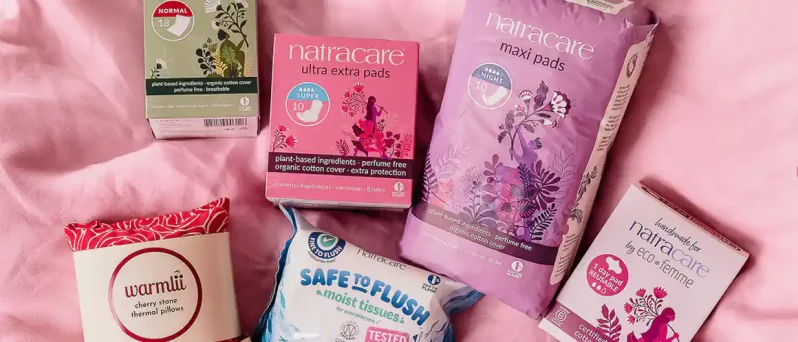
Like your information👍
😊
I think that if more than 5% of plastic was at the very least recycled then at least we would be doing better than we are right now. Its such a shame we are willing to throw away our future and the future of the human being for a soda! And I see no reason why each town or city could not bring in revenue from investing in free recycling in every town in america. I lived in a lot of different town and always wanted to recycle but it was always so difficult to find a
recycling plant to take it to. I live in Kansas city and now it is a free service at my curb and its wonderful. maybe everyone wouldn’t but a lot more would!
The whole waste system definitely needs a change! We can be doing better and it sounds like your city is doing something right by making it easier to recycle
Yes! I’m still a kid, and my mum doesn’t let me recycle plastic bottles because it’s hard to find a recycling plant where I live.
Why does plant based plastic not protect from moisture and bacteria? Does that mean that plant based plastic is not safe for storing food?
Hi Lynn, home-compostable bio plastic won’t prevent bacterial crossover. However, lots of companies make industrial compostable food containers which are safe. The issue with this is that there aren’t well established waste disposal infrastructure for these types of bio plastic. If they aren’t industrially composted they remain in the environment in much the same way as normal plastic does!
To what extent will chemicals from these bottles leach into the drinks they contain? If there’s any leaching at all, these bottles could be unsafe for folks with allergies to wheat or corn–two fairly common allergens.
Your organization has good intentions, but maybe referring to Consumer Reports would be a good idea. According to them, plastics are toxic when broken down.
You’re right about that Anne. I constantly correct people when they say it takes hundreds of years for plastics to breakdown, they never breakdown, they just become poisonous chemicals. This article did mention that fact though, if you look right after they say “it takes 500 years”, they qualified that statement.
Thanks for making my suspicions clear. I am hoping to shape a plant based surfboard someday, looking for a plastic resin that can be chemically catalyzed or air catalyzed. Structural strength isn’t important, but it must be 100% waterproof. After learning that our atmosphere is saturated with micro plastics, it made me realize that when I sand a surfboard, I’m putting micro plastics in the atmosphere, the same is true when I sand polyurethanes and paints. I’m painfully aware of the plastic problem as the head of Clean the Pacific, a coastal clean up organization in Hawaii.
I am looking for vegan, biodegradable gloves. Which brand can I trust?
Thanks
sksksksks save the turtles stop plastic waste
I find it impossible to know where I stand on this subject, Fossil based – versus – Plant based.
As far as I understand the chemicals, we use for plastic from fossil fuel is the waste from the oil extracted, it’s not extracted to make plastic, it extracted for industry, homes, cars etc. The crap that remains from the oil after refining is used in the plastic production. Fossil based plastic can be recycled, industries such as food and drink have failed us by constantly using virgin plastic and not promoting and using recycled fossil-based plastics.
If we as consumers switch to Bio – plastic (an exceedingly small percentage of plastic production) but making headway as the solution, are we not just confusing matters and not solving any problems?
Plant based plastics have the same properties as fossil based, they do not bio – degrade unless they are in an industrial plant, a vast amount of land would be needed to grow whatever plant you use, and all sort of pesticides would be used to cultivate them. It is hardly environmentally friendly!
The other trouble is you cannot recycle mixed plant based and fossil-based plastics together, they are just not compatible, so you would need two recycling systems in place, and we cannot even get one right! If we stop using fossil-based plastic what happens to all the crap left from the continued oil refining?
I think sometimes we jump on the latest eco marketing solution but is it the answer?
I find it fascinating for want of another word that clothing companies are making hundreds of pounds selling jackets or jumpers made from recycled plastic bags, when we are burning sheep wool because it no longer has any value! 30p for a fleece, it costs more to shear them and yet, it’s an amazing waterproof natural product, it’s also good practice to shear sheep for their well-being and they repay us by keeping our countryside beautiful, (I am personally not interested in eating their lambs) but sheep wool (for no good reason) is out of vogue! I feel this could be the same for fossil fuel plastics.
I would love to hear others’ opinions. Fossil or Plant what do you think?
I’m glad to see your questions and concerns. Very insightful.
Any effort or any thing that can lead us to a sustainable and ecologically justified future for plastics is a good thing
We agree that sustainable development is a good and important step in the right direction, however we aren’t convinced that’s what these are. They’re creating the same problems for our environment, just from different resources.
Thankyou! This was very helpful and useful. It explained a lot of the blurry parts of my view of bio-plastic.
You’re welcome! Yes there are lots of blurred lines, so it’s important to be aware of greenwashing 💚
Sounds interesting also complicated